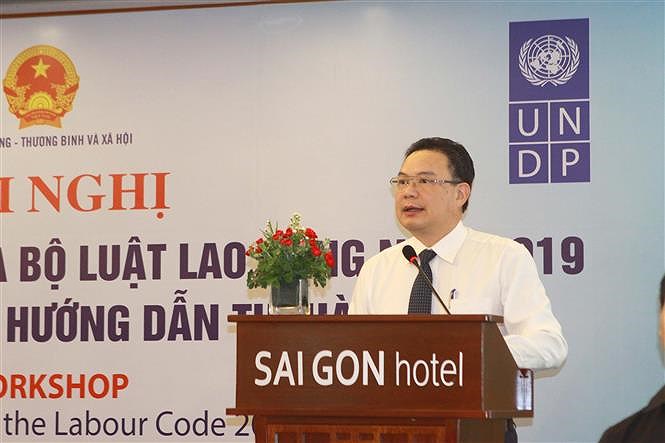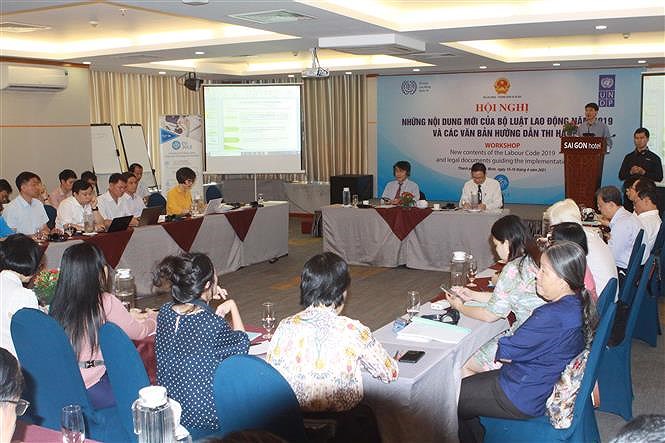 Deputy Minister of Labour, Invalids and Social Affairs Le Van Thanh speaks at the event (Photo: VNA)
Deputy Minister of Labour, Invalids and Social Affairs Le Van Thanh speaks at the event (Photo: VNA) A meeting was held in
Ho Chi Minh City on April 15 and 16 to discuss the implementation of new content in the
2019 Labour Code and documents guiding its enforcement.
Deputy Minister of Labour, Invalids and Social
Affairs Le Van Thanh said the 2019 Labour Code, which took effect on January 1
this year, is comprised of 17 chapters with 220 articles.
It features a number of major, important, and
historic amendments and supplements that meet new requirements in the
management of the labour market. The changes are also meant to realise
Vietnam’s commitments to the international community, thus ensuring that
domestic regulations match international labour standards and harmonise the
interests of employees, employers, and the country, he noted.
Thanh pointed out the need to disseminate and
provide training in the Labour Code and guidance documents so as to improve
relevant parties’ awareness and remove obstacles to its enforcement.
 At the event (Photo: VNA)
At the event (Photo: VNA)
Director of the International Labour
Organisation (ILO) in Vietnam Chang-Hee Lee said the 2019 Labour Code has met
requirements in the current labour market as well as those set up by
international organisations, adding that the implementation of the new content
and guidance documents is critical to helping localities and relevant agencies
with enforcement, thereby creating a more harmonious environment in labour
relations.
He said that over the last 20 years, more and more
businesses from other countries have engaged in the local labour market and appointed
Vietnamese employees to important positions.
This outcome, he said, is due to Vietnam’s
political stability and large workforce, with the industriousness of its workers
being critical to national economic development.
Highly valuing Vietnam’s labour market, which
has been continually developing in recent years, he said that what the
Government, ministries, and sectors need to do now is to create the best
possible conditions for the legitimate interests of workers to be ensured and for
them to make active contributions towards a better future./.